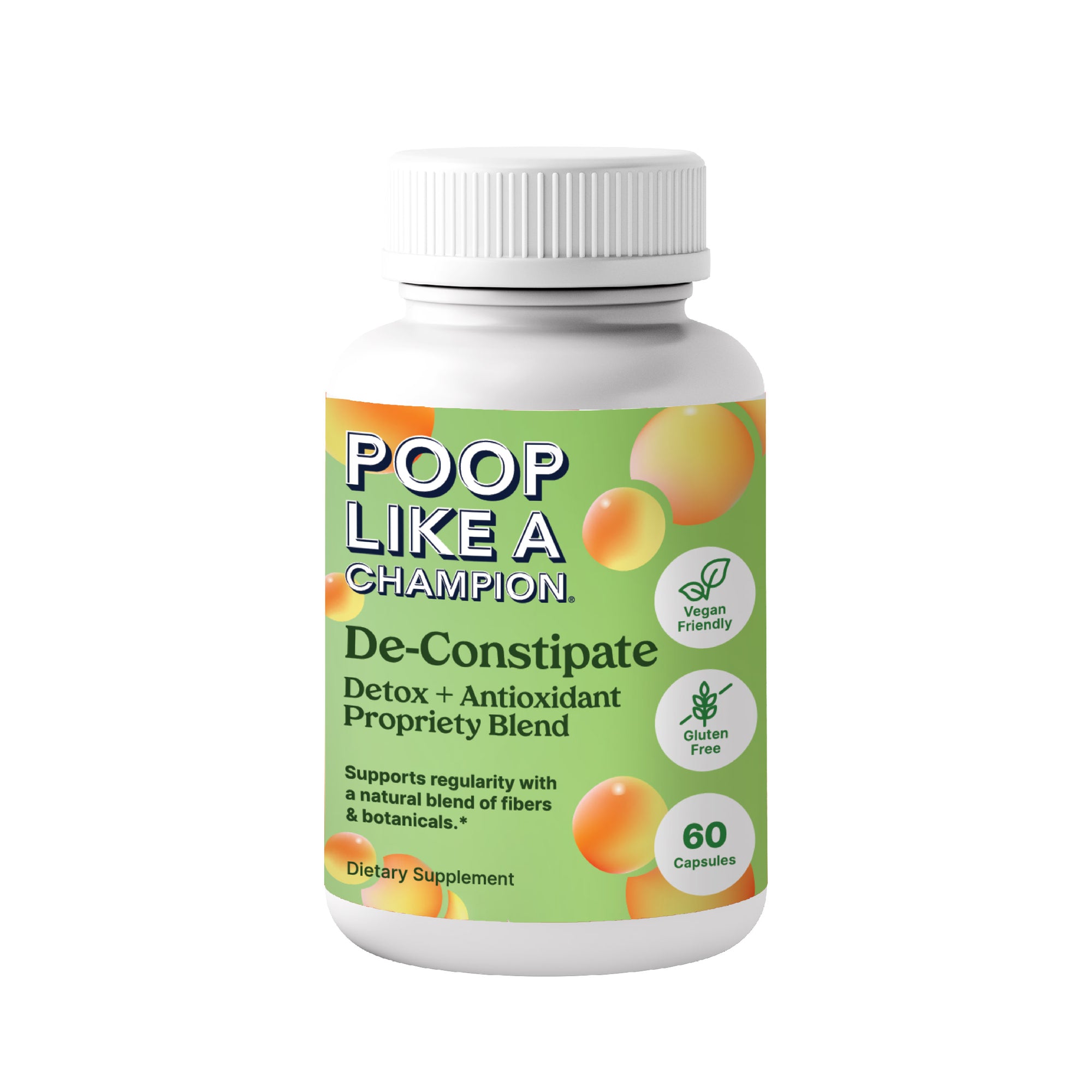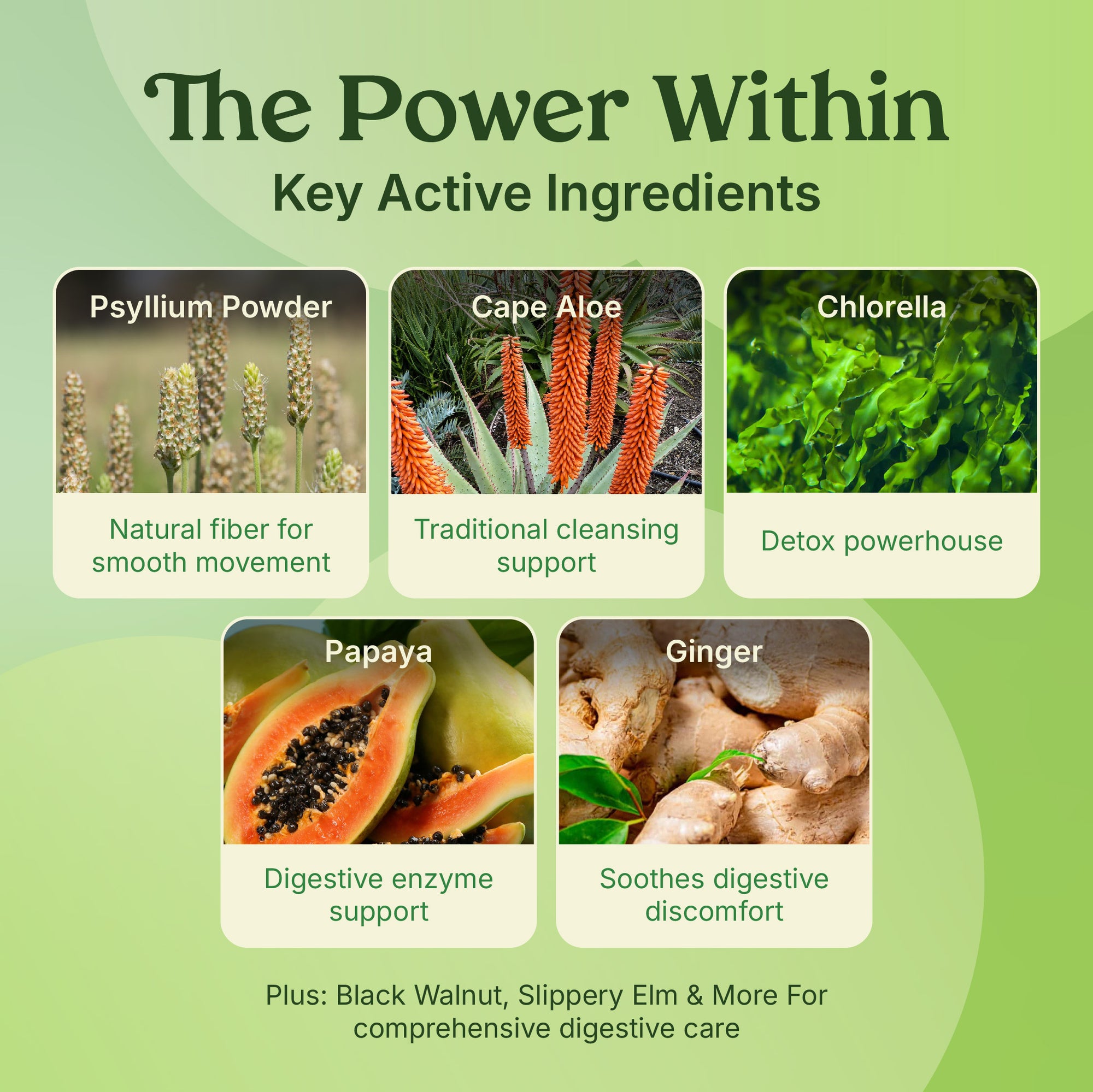

5 Things About Gut Health You Need To Know
20 minute read / a leisurely toilet break
Our gut can influence the function of our whole body. Perhaps, an apple a day is not what keeps the doctor away. It’s actually a healthy gut.
First things first: What does your gut do?
Your gut is in charge of getting your body functioning properly. It absorbs nutrients that support all of the bodily processes that it performs: from energy generation to hormone balancing, skin health to mental health, and even toxin and waste removal.
To properly nourish your body and live a healthy life, it's important to take care of your gut.
So, here are five essential things you must know about your gut health and its connection to your body.
1. Taking care of your gut can reduce the risk of diseases
At some point in your life, you've experienced getting an upset stomach, constipation, bloating, diarrhea, loose stools, cramping, or a stomach illness. These are normal occurrences every now and then, but if this happens regularly, you must consult your doctor immediately as these signs could lead to serious conditions such as Irritable Bowel Syndrome (IBS), allergies, Crohn's disease, or other chronic illnesses.
Other health conditions that may develop due to poor gut health are allergies to particular foods and plants, dry skin problems like eczema, and the way your hair and fingernails look. Your body distributes and breaks down the nutrients you consume, so if you consume too much of one type and not enough of another, your body may react by not functioning as well as it should. Additionally, a weakened immune system or the emergence of age-related illnesses can result from this.
Furthermore, managing gut health has been shown to positively impact heart health and weight management and prevent serious diseases such as Diabetes. Keeping your immune system healthy by nourishing your gut can also help prevent or treat autoimmune disorders.
2. Your gut and mental health are somewhat connected
If you have a mental health condition such as anxiety, depression, or bipolar disorder, it may show up in ways other than your emotions or mood. It may also have an effect on how your gut behaves. Many people who struggle with mental health may find that flare-ups cause their gut to become upset.
New research suggests that the gut may also play an important role in mood regulation. Everyone understands what it's like to be "hangry," but the impact of your gut health on your overall emotional state may go beyond that. You may experience increased mental or emotional distress if your gut is unhealthy. This could be your body's natural way of telling you that it isn't getting the nutrition and care it requires to function properly.
3. Having an active lifestyle can improve gut health
Exercise has an impact on all aspects of your health, including your gut. Regular physical activity can improve digestion and nutrient distribution. It can also help reduce the amount of toxins and harmful microbes in your body while balancing out the good microbes. Moreover, regular exercise prepares your body, and thus your gut, to deal with environmental stressors in a much healthier manner. When life throws you a curveball, your entire body will be better prepared to respond in a healthy way.
4. A healthy, fiber-rich diet is the key
Many of the problems that arise in your gut are caused by inflammation or the toxic growth of bad bacteria. These problems can be solved by altering the foods you eat. Fast food, artificial sweeteners, and white bread, for example, contain a lot of unhealthy fats, sodium, and processed carbohydrates, which often allow the bad bacteria in your gut to thrive. High-fibrous foods, antioxidants, protein, and healthy carbohydrates are more likely to support the growth of good bacteria and keep you from experiencing gut health issues.
Green leafy vegetables, whole wheat pasta, sweet potatoes, kombucha, kimchi and other fermented foods are a great source of fiber. But it's tough to have all of those things on a regular basis, we get it. A simple option is to have a bowl of Ultra Fiber Cereal in the morning before you rush off for your day-to-day.
Another good way to keep your gut healthy is by adding high-fiber supplements to your diet to regulate your bowel movements such as Poop Like A Champion High Fiber Gummies. It contains 1g of soluble fiber for each gummy which helps support constipation relief and is made from natural, plant-based ingredients so it’s perfect for everyone.
If you're still curious about fiber, read more here.
5. Stress impacts your gut health
According to experts, the gut is often referred to as the second brain because it has a nervous system with more neurotransmitters than the brain’s central nervous system. When we’re stressed, our stomach is affected too.
Finding ways to manage stress levels may help reduce uncomfortable gastrointestinal symptoms and get your body back in balance.
Self-care activities are frequently used by people to unwind from their hectic lives and devote time to their own health. Many activities that people do to accomplish this can have positive impacts on gut health, such as:
- Getting an adequate amount of sleep
- Consuming plenty of water
- Slowly savoring and eating food
- Meditation and artistic expression
- Managing anxiety and depression conditions
Remember: happy gut = happy you.


























